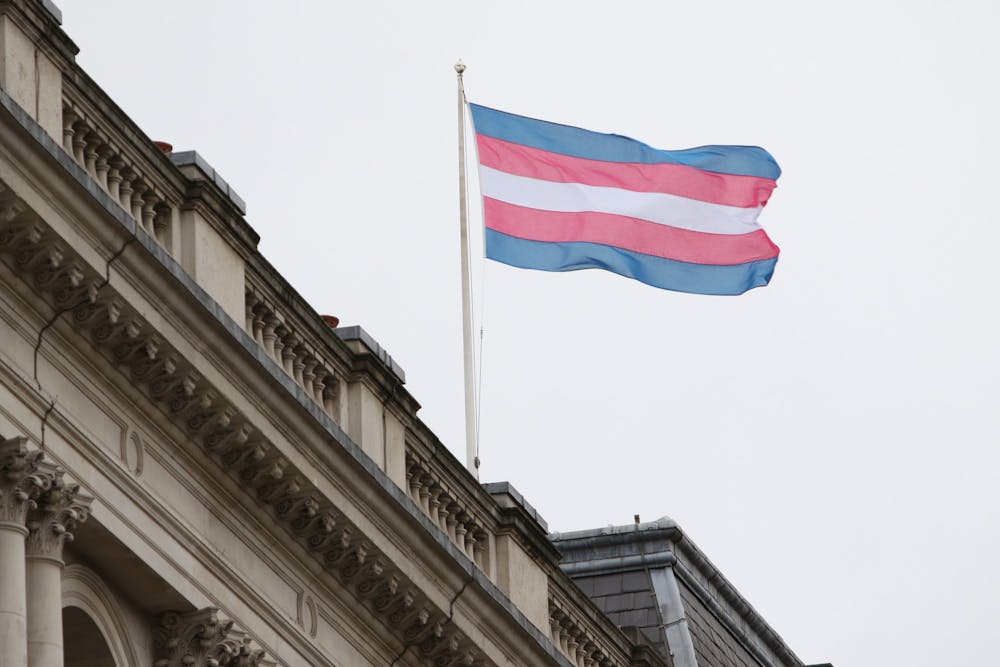Content warning: The following column contains mention of references to mass shootings, death, and transphobia.
Five more people are dead.
It’s jarring, exhausting, and heartbreaking to read about the recent shooting at Club Q in Colorado Springs, Co. It becomes hard to read about these things day in and day out and still be able to put faces to names, as opposed to following what news outlets love to do time and time again: treating them as another subset in a line of hate-crime victims that extends ad infinitum. It hurts, in particular, that these people — Daniel Aston, Kelly Loving, Ashley Paugh, Derrick Rump, and Raymond Green Vance, as well as the countless others who were involved — were people in a community very significant to me, a fact that has been glossed over or trivialized in most coverage of the shooting.
This latest instance of gun violence is hardly an isolated incident. Rather, this shooting and hate crimes like these are direct outcroppings of the transphobic rhetoric that is bandied about on every conceivable media outlet on a daily basis. Real, actual violence against transgender — and queer, more generally — individuals is a sentiment that far too many people harbor. And I want to look at the most pervasive, seemingly-ingenuous anti-transgender clichés in order to prove it.
Not too long ago, I read an article published in The Guardian by Phoebe McDowell, who was writing about the effects of her transgender girlfriend’s transition on their (now-former) relationship. I can’t tell you how infuriating it was to read this piece. Despite its sometimes-baffling outward claims of acceptance, the piece is chock-full of anti-transgender rhetoric, starting from the very title itself, which categorically refers to the subject of the piece as the author’s “boyfriend.”
Yet what concerns and distresses me most is not the misgendering of the author’s ex-girlfriend; rather, it’s the fact that throughout the piece, McDowell continuously pathologizes and dehumanizes transgender people.
McDowell spends the piece’s entirety reflecting mournfully on the “boyfriend” that she used to have. “The devastatingly handsome boy I met,” she laments, “would no longer be mine.” “Watching those closest to me celebrate the erosion of the person I loved was crushing.” McDowell even references what she calls “inquiries” about her newfound situation, ranging from “I’m so sorry” to “Were there any signs?”
McDowell, and seemingly almost every other peer in her many anecdotes, considers her ex-girlfriend as dead. Indeed, she mentions what she calls a support group for “trans widows.” Candidly, I’m vomiting a little bit in my mouth.

Too often, people consider transgender people effectively “dead” after transition, replaced by somebody who might as well be a complete stranger.
To a limited degree, there is truth to the narrative that trans people are completely changed post-transition. One of the most exciting parts of gender transitioning, physically and socially, is being able to cast off the “false self” persona, centered around presenting as one’s birth gender, that trans people adopt for purposes of safety pre-transition. But it’s abundantly clear as a result of this rhetoric that this isn’t how many cisgender people see it. For them, the closeted self is more of a “true self,” and the gender transition is that person’s death. This perspective justifies many cruel and banal talking points: how trans people are engaging in “grooming,” for example, or simply deviating from the socially acceptable norm.
The shooting in Colorado Springs has taken up a great deal of my headspace, as has a litany of abuse from people very close to me. I’ve been wildly confused about how some members of my family — who purport, in public spaces, to be “liberal,” “accepting,” and “open-minded” — have turned so strongly on me behind closed doors, but I think considering issues through the lens of the true self persona and the false self persona helps explain why.
People who pretend to be “liberal” or “accepting” are often more comfortable with arguing in favor of transgender liberation — or, at least, assimilation — in the abstract, when it has to do with lives behind television screens or on Twitter that don’t seem to concern them. But when they’re forced to engage with it in the literal, real, and concrete, by having to share in the gender transition of somebody close to them, what was glamorous in theory becomes frightening.

Transitioning isn’t pretty. It’s intensely terrifying to step into the shoes of the person you’ve always wanted to be when part of you wants to stay in the worn-but-comfortable pair you’ve always had.
The current attempt at transgender genocide is a direct consequence of the fact that there is a large and non-negligible faction of people who believe that somebody’s gender transition is tantamount to their death. It’s not a stretch to believe that these people have no problem with seeing transgender people dead; after all, their “real self,” according to them, might as well be.
If you examine more extreme cases of anti-transgender sentiment, this becomes more clear. After the recent Colorado Springs shooting, commentators on social media and the news have taken up arms, aggressively doubling down on claims that trans people, particularly drag performers, are “groomers,” and to effectively, implicitly claim that those murdered might as well have had it coming to them. (See my second-latest in the ‘Prince’ for more.) Commonly-held conceptions about being transgender and transitioning are precisely a large part of the reason why violence and hate crimes against trans people have increased. It’s not merely because of a small subgroup of right-wing individuals who openly call for it. Rather, it’s because this sentiment exists, albeit more latently and less brazenly, in the people who surround me.
I don’t really care what you email me, but I particularly want to preempt — and, in fact, vehemently reject — claims that I am over-exaggerating the facts, or making mountains out of molehills. The number of death threats I have received over the course of my life renders this argument a nonstarter.
Transgender liberation is a reality. It shouldn’t come at the cost of transgender lives.
Aster Zhang is transgender and also a former Head Editor for The Prospect. She can be reached at brentonz@princeton.edu.








